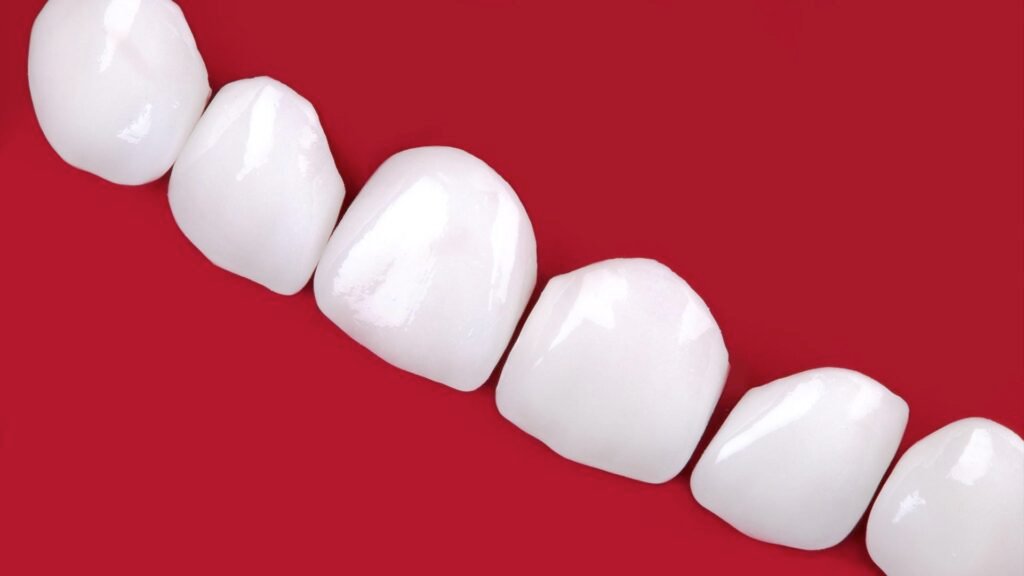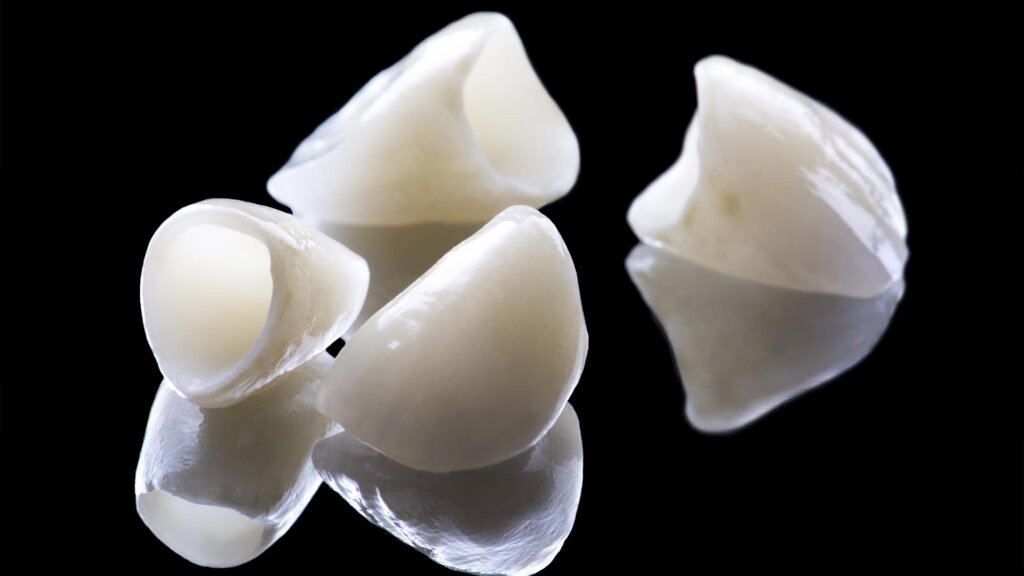💎 When it comes to restoring a damaged tooth, the crown you choose can completely transform your smile. The right type of crown doesn’t just fix a tooth — it protects your bite, boosts your confidence, and can last for years.
In this guide, we reveal the types of dental crowns and cost in the U.S., so you can choose the perfect option for your smile, your budget, and your lifestyle. Whether you’re after the most natural look, the longest-lasting material, or the best value, we’ve got you covered — and we’ll help you make the decision fast.
🚀 Spots fill quickly! Don’t wait until pain or damage gets worse — Dental Crowns today, compare your options, and book your crown treatment now to secure the best price and priority scheduling!
Table of Contents
ToggleWhat Exactly Is a Dental Crown?
A dental crown is a custom-made “cap” that fully covers a tooth to restore its shape, size, strength, and appearance. Dentists often recommend crowns for teeth that are cracked, heavily filled, weakened after root canal treatment, or in need of cosmetic improvement (Cleveland Clinic, 2024).
Crowns can be crafted from various materials, each offering unique advantages in terms of durability, aesthetics, and cost.
Crowns can be crafted from various materials, each offering unique advantages in terms of durability, aesthetics, and dental crowns cost.
Types of Dental Crowns and Their U.S. Price Ranges
Below is a clear breakdown of the most common crown materials, their benefits, and typical U.S. costs:
Crown Type U.S. Cost Range (Per Tooth) Key Benefits Ideal For All-Ceramic / All-Porcelain $800 – $3,000 Most natural look, metal-free, biocompatible Front teeth & visible areas Porcelain-Fused-to-Metal (PFM) $500 – $1,800 Strong core + natural outer layer Front & back teeth Metal (Gold / Alloy) $600 – $3,500 Exceptional durability, minimal wear on opposing teeth Molars & heavy bite areas Zirconia $1,000 – $2,500 Highly durable, aesthetic, can be monolithic or layered Any tooth location Resin (Composite) $300 – $1,000 Low cost, quick to produce Temporary or budget cases Stainless Steel Lower (varies) Prefabricated, strong Children’s primary teeth 💡 If you’re looking for the strongest and longest-lasting option for back teeth, check out our full guide on metal dental crowns.

What Is the Best Type of Crown for Teeth?
The “best” crown depends on your unique needs:
For maximum aesthetics: All-ceramic or layered zirconia crowns mimic natural enamel beautifully (PubMed, 2016) Many patients choose ceramic dental crowns for their lifelike appearance and stain resistance .
For strength in back teeth: Full zirconia or metal dental crowns excel under heavy chewing forces
For a balance of beauty and function: PFM crowns offer good looks with proven durability.
For short-term or low-cost cases: Resin crowns are a temporary fix while preparing for a permanent option.
Factors That Influence Cost
Beyond material, several elements affect the final price:
Tooth Preparation Needs – If you require a root canal or core build-up, expect an additional $200–$650.
Technology Used – Same-day CAD/CAM crowns can add convenience but increase costs.
Geographic Location – Prices are typically higher in metropolitan areas due to lab fees and overhead.
Dentist’s Expertise – Highly experienced restorative dentists may charge more, but often deliver superior fit and longevity.
U.S. Price Comparison Table
| Crown Type | Average Cost | Lifespan |
|---|---|---|
| All-Ceramic | $1,500 | 10–15 years |
| PFM | $1,200 | 10–15 years |
| Metal | $2,000+ | 15–20 years |
| Zirconia | $1,800 | 15+ years |
| Resin | $750 | 3–5 years |
| Stainless Steel | Lower | Until tooth falls out naturally |
Global Cost Snapshot (Canada & UK)
While this article focuses on U.S. pricing, average crown costs can be lower in countries with different healthcare systems. For example:
Canada: CAD $800 – $2,000
UK (Private Clinics): £500 – £1,200
However, international prices don’t always include the same lab quality or material options available in the U.S.
Real-Life Scenarios & Recommendations
Front Tooth Replacement: Choose all-ceramic or lithium disilicate for the most natural result.
Back Molar Under Stress: Zirconia or metal is best for durability.
Budget-Friendly Choice: Start with resin, upgrade to zirconia or ceramic later.

Longevity and Care
Most crowns last 10–15 years, and some last 20+ with proper care (American Dental Association, 2023). To extend lifespan:
Brush and floss daily
Avoid chewing hard foods like ice or unpopped popcorn kernels
See your dentist for regular check-ups
For those interested in a highly durable and aesthetic crown option, Zirconia Dental Crowns are an excellent choice. This guide covers cost, benefits, and care tips to help you make an informed decision.
By understanding the types of dental crowns and cost, you can make an informed, confident decision about your oral health. Whether you’re focused on appearance, strength, or balancing both, the right crown can protect your tooth for years to come.

